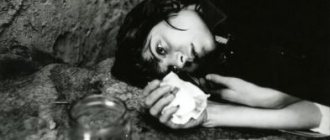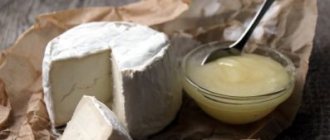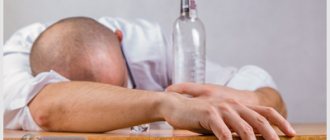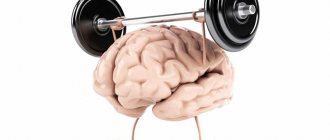What is withdrawal syndrome?
Alcoholism is a person’s persistent dependence on alcoholic beverages and alcohol-containing liquids (experienced alcoholics who do not have enough money for full-fledged alcohol replace it with pharmaceutical alcohol tinctures and colognes).
Often, addiction in men and women is formed against the background of mental illness (depression, neuroses), problems in life.
A person gets used to drowning small and big troubles with alcohol-containing drinks and over time ceases to be able to refuse them.
Since alcohol is a depressant, most alcoholics experience post-alcohol depression, pushing them to drink more.
Alcohol withdrawal syndrome is another pathological condition that affects a person’s desire to drink.
In its characteristics it resembles a hangover, but it is much more severe, and if a person does not drink, it will persist for several days. A normal hangover goes away within a few hours, even without taking medication.
Alcohol withdrawal is observed in the second and third stages of alcoholism . This condition is characterized by the presence of an extremely strong, painful desire to drink, which intensifies in the evening against the background of exacerbation of psycho-emotional symptoms - anxiety, sadness.
The more experience an alcoholic has, the more severe his withdrawal symptoms are. The mildest version of the withdrawal syndrome is observed during the transition from the first to the second stage of alcoholism, the most severe, requiring hospitalization , is in the third.
Possible complications
Withdrawal syndrome not only significantly affects a person’s well-being, but can also lead to complications in the form of:
- hallucinations;
- seizures;
- alcoholic delirium;
- Wernicke's encephalopathy;
- Korsakoff's syndrome.
The maximum risk of complications from alcoholism is noted:
- in patients over 70 years of age;
- in those in need of artificial ventilation;
- in patients hospitalized with other complications (brain damage, hypoxia, etc.);
- if the start of treatment is delayed by more than 24 hours.
Many people have heard about the so-called “delirium tremens” during alcohol withdrawal syndrome. After this condition, physical relief occurs, but the nerve cells of the brain die without the possibility of their recovery. That is why it is imperative to relieve withdrawal symptoms in alcoholism.
Causes
The only reason for withdrawal symptoms is persistent dependence on ethanol-containing drinks , which persists for at least two to three years.
If we talk about physiological processes, the mechanism of withdrawal syndrome can be represented as the following chain:
- Due to prolonged consumption of alcohol, the process of breaking down alcohol-containing drinks entering the body changes. Products entering the gastrointestinal tract undergo a fermentation process.
In healthy people, alcohol-containing liquids are processed by the enzyme alcohol dehydrogenase. But, if these fluids are supplied in large quantities for a long time, the body activates other processing methods that involve the microsmal ethanol-oxidizing system and the enzyme catalase. And the level of alcohol dehydrogenase decreases. - Due to changes in fermentation processes in the blood, the level of acetaldehyde, a product of ethanol oxidation , begins to increase, which negatively affects the concentration of dopamine.
- Due to a lack of dopamine, an alcoholic develops a stable dependence on alcohol , since it temporarily replaces dopamine. This happens in the first stage.
- When alcoholism enters the second stage, the absence of alcohol leads to a disruption of the established compensatory mechanism , in which it replaces dopamine, and as a result, the body begins to actively produce this neurotransmitter.
- Due to a sharp jump in dopamine concentration, symptoms characteristic of withdrawal develop . The higher the dopamine level, the more severe the symptoms. If the concentration of this neurotransmitter exceeds the norm by three or more times, delirium develops (also called “delirium tremens”).
In addition, acetaldehyde has a negative effect on the concentration of oxygen in the blood .
Accordingly, the body’s tissues begin to receive less of it, which leads to the appearance of additional symptoms observed during withdrawal.
Drug detoxification
Treatment of withdrawal syndrome and withdrawal from binge drinking is carried out using droppers that cleanse the body. This type of therapy allows the doctor to remove toxins from the patient’s body as quickly as possible.
In addition, droppers are very convenient for intensive administration of drugs in the treatment of withdrawal syndrome, because in this way they are delivered directly into the bloodstream and quickly reach all organs of the body.
Today, infusion therapy can be carried out efficiently and safely not only in a specialized clinic, but also at home. The best doctors come to the patient, who have everything necessary to relieve withdrawal symptoms and binge drinking, equipment, and a wide range of medications.
However, do not forget about the advantages of treatment in the clinic:
- Opportunity to use hardware-enhanced detoxification products.
- Access to resuscitation and intensive care facilities.
- Possibility to urgently take tests and conduct functional diagnostic studies.
- Very important: interaction with a psychologist who motivates for treatment, the opportunity to immediately move on to a full program for curing the disease.
It is worth remembering that detoxification is not enough for recovery, because the patient still remains psychologically dependent on drinking alcohol.
Classification and symptoms
The main types of the syndrome, depending on the key symptoms:
- Somatic. In this case, disturbances in the functioning of internal organs and systems, mainly in the gastrointestinal tract, were most clearly manifested. The patient experiences moderate yellowing of the whites of the eyes, arrhythmia, increased gas formation, nausea, vomiting, diarrhea, pain in the heart area and in the upper abdomen.
- Neurovegetative. Of all the types, it is the most common. Accompanied by problems with sleep (insomnia, frequent awakenings, painful, disturbing dreams), loss of appetite, up to its disappearance, accelerated pulse, swelling of the face, dry mouth, surges in blood pressure, tremor of the hands, and excessive sweating.
- Psychopathological. This form is based on mental abnormalities: a feeling of anxiety that periodically worsens, especially in the evening, severe sleep problems, short-term illusions and even hallucinations. Spatial orientation is impaired. Patients with a psychopathological form are prone to suicidal behavior.
- Cerebral. This type is characterized by loss of consciousness, severe pain in the head, dizziness, hypersensitivity to sound stimuli, and in some cases, seizures.
Mental disorders are always present during abstinence, in any of the variants of the course, but their severity varies from mild to severe.
There are also three degrees of severity of withdrawal syndrome:
- First. It is observed between the first and second stages of alcohol dependence. Appears after two to three or more days of drinking alcohol. The most striking signs are severe dry mouth, excessive sweating, rapid heartbeat, weakness, and a feeling of fatigue. Mild anxiety and other mental abnormalities may also appear.
- Second. When the patient has a stable second stage of alcoholism, the symptoms characteristic of withdrawal will worsen and new ones will appear. As in the previous case, it develops after heavy drinking. In addition to the above-mentioned symptoms, there are signs indicating incorrect functioning of the internal organs: the sclera and skin turn red, blood pressure fluctuates, vomiting, nausea, tremor of the hands, staggering while walking, difficulties when trying to maintain balance.
- Third. Present between the second and third stages, observed after prolonged heavy drinking (at least a week). Symptoms characteristic of previous degrees of severity are present, but psycho-emotional deviations become the most pronounced. Patients see frightening dreams, they experience various sleep disorders (insomnia, frequent awakenings, daytime sleepiness), frequent restlessness, anxiety, feelings of guilt, sadness, a sense of hopelessness, and possible increased aggressiveness. At the third stage, both somatic and mental symptoms are present, and their severity intensifies.
But, one way or another, the set and severity of symptoms varies and depends on many factors: age, state of physical health, presence of mental illness, duration of binge drinking and drinks consumed.
In addition, during the course of withdrawal syndrome, two separate stages can be distinguished:
- Early symptoms. Appears during the first two days after quitting ethanol-containing liquids. Accompanied by both somatic and mental disorders.
- Late symptoms. The second wave of symptoms is observed on the second to fourth days after refusal. In this case, psycho-emotional disorders, including delusions and hallucinations, come to the fore. Some symptoms that were observed before become worse. It is during this period that delirium may occur.
In rare cases, the first sign of withdrawal is an epileptic seizure , and other symptoms occur later.
Binges
One of the most dangerous and disgusting manifestations of alcoholism is binge drinking. During this period of continuous alcohol consumption, the patient literally loses his human appearance.
Binge drinking can last several days, and sometimes several weeks, it all depends on the stage of the disease. The deeper the dependence on alcohol, the more severe the withdrawal syndrome is observed in the addict, which means it becomes more difficult for the alcoholic to fight it.
If a patient with alcoholism gets even a small dose of alcohol into his mouth, he will experience withdrawal symptoms. If this happens, it is necessary to treat alcohol withdrawal syndrome with medications as soon as possible. Such a phenomenon as alcohol withdrawal syndrome is observed with the onset of the second stage of the disease; novice drunkards are under the illusion that the problem of binge drinking will never affect them. And completely in vain.
Treatment
The tactics for relieving withdrawal symptoms in each individual case are determined individually , depending on the age and health of the patient, as well as the set of symptoms.
In the presence of severe psycho-emotional disorders, the treatment process takes place within the framework of a psychiatric hospital.
Treatment can take place at home only in the case of a mild course , in which nothing threatens the life and health of the patient and those around him. It is important that the patient is examined by a doctor who will determine treatment tactics.
Mandatory elements of inpatient treatment are:
- connecting IVs with saline solution that eliminates and prevents dehydration;
- introduction of vitamins;
- carrying out measures aimed at removing toxic substances from the body (in mild cases, taking Smecta or other enterosorbents orally is sufficient; in severe cases, plasmapheresis may be indicated);
- administration of medications that improve the condition of those internal organs that require attention, especially if the patient has chronic diseases;
- administration of drugs that improve the psycho-emotional state of the patient.
Carrying out all these activities at the proper level ensures rapid relief of withdrawal symptoms.
This pathological condition is treated by a narcologist .
Groups of medications often used in the treatment of withdrawal symptoms:
- Enterosorbents (Smecta, Polysorb). Accelerate the removal of toxic substances.
- Anticonvulsants (Carbamazepine). They prevent the occurrence of epileptic seizures and are prescribed without fail in cases where the patient has had seizures.
- Benzondiazepines (Phenazepam, Diazepam). Eliminate anxiety, have a beneficial effect on sleep, and reduce the likelihood of epileptic seizures.
- Antipsychotics (Haloperidol, Risperidone).
They are prescribed if the patient has hallucinations, delusions, or behaves aggressively. But in some severe deliriums they may be contraindicated. - Sleeping pills (often from the group of barbiturates: Cyclobarbital, Thiopental). Indicated in the presence of pronounced sleep disorders.
- Diuretics (Veroshpiron, Furosemide). Reduce blood pressure and accelerate the elimination of toxic substances.
Doctors select a medication regimen based on available data.
Instead of an afterword
All of the above methods are pretty good. Removing and treating withdrawal symptoms is within the power of everyone. But it is best to know the limits when drinking alcohol, and not to cross reasonable boundaries.
This is how drinking culture develops. But creating a cycle of alcohol for yourself is the highest stupidity, since very soon you will need serious treatment. You need to drink in moderation and not know what alcohol withdrawal syndrome is. I wish you health and a great life, in which there will be no place for addiction!
First aid at home
If your loved one with alcoholism experiences signs of alcohol withdrawal, it is important to:
- If possible, keep the patient drinking plenty of water or (best) oral rehydration solution. This is especially necessary if the patient has vomiting and diarrhea, since during these processes water and minerals are actively removed from the body, which can lead to the development of dehydration. If he has previously been prescribed benzodiazepines or other drugs to improve his psycho-emotional state, it is important to give them. If it is difficult or impossible to give water to a patient for any reason, you must call an ambulance.
- Determine the severity of his condition. Remember if he has chronic diseases, measure his blood pressure, find documentation that the doctor may need.
- Call a narcologist at home (if the patient’s condition is critical, then an ambulance). An emergency call is necessary if a person has severe diseases of the liver, heart, kidneys, pancreas, acute respiratory diseases (bronchitis, pneumonia), if he shows aggression and poses a danger to himself and others, threatens to commit suicide, hallucinates, carries rave.
it is up to the doctor to determine whether it is advisable to carry out treatment at home . He will prescribe the necessary medications, explain what diet you need to follow, and so on.
During abstinence, it is unacceptable to ignore the need for examination: what may seem insignificant to a layman can in fact pose a threat.
In addition, the patient’s condition is heterogeneous, and after the first symptomatic wave subsides, a second wave will follow, in which (delirium tremens) may even appear
Relieving withdrawal symptoms - the best and most effective methods
First, you need to say a few words about what happens in the body of any person during alcohol abuse, which causes a hangover.
Withdrawal syndrome is the body's reaction to excessive alcohol consumption. More precisely, this is how the body copes with alcohol intoxication. A lot of resources are spent on processing ethyl alcohol. For example, a lot of moisture is required to cope with the current situation in the body. Dehydration occurs, which disrupts the functioning of many internal organs. The result is severe thirst, poor general health and other signs of withdrawal.
The human body experiences severe oxygen starvation. For this reason, there is a headache, dizziness and other unpleasant consequences. But what can pharmaceuticals offer in this case? How to treat a hangover?
Pharmaceuticals for the treatment of withdrawal symptoms
The most common drug against withdrawal symptoms can be safely called the well-known Alco-Seltzer.
Most reviews indicate that the drug is good against hangovers. It contains baking soda, acetylsalicylic acid and citric acid. The drug accelerates the removal of ethyl alcohol breakdown products from the body and has a good tonic effect.
Antipohmelin can be used to prevent withdrawal syndrome. Its effect is that it assists the body in processing ethyl alcohol. Thanks to Antipohmelin, alcohol is utilized without severe intoxication of the body.
A drug for treating withdrawal symptoms such as Zorex has also proven itself well. It stops the negative consequences after drinking, helps the body cope with alcohol poisoning better and more effectively.
Recently, a herbal remedy against withdrawal symptoms such as Zenalk has become popular. It contains natural components that not only enhance metabolic processes in the body, but also have a good antioxidant effect.
In addition to all of the above, you can take regular aspirin or citramon. They will not only significantly alleviate the condition, but also help relieve headaches and other unpleasant phenomena.
However, there are other ways that will help you deal with a hangover well. Many of them are famous and popular, and some of them will be a kind of discovery for some people.
Popular methods against alcohol withdrawal syndrome
For example, the familiar pickle juice is an excellent hangover cure. You can use cucumber, cabbage and any brine from canned vegetables. It helps neutralize the negative effects of ethyl alcohol breakdown products and copes well with intoxication.
Vitamin C also perfectly relieves alcoholic hangovers. It is not for nothing that many anti-hangover drugs contain ascorbic acid. Vitamin C tones the body, accelerates all metabolic processes, and has an antioxidant effect. Therefore, during heavy libations, you should always have a supply of citrus fruits: oranges, lemons, grapefruits, limes. You can use them in their pure form, or you can prepare a special drink, which will include mineral water, a couple of lemon slices and freshly squeezed juice of any citrus fruit. This drink has the ability to remove toxins from the body, additionally toning and refreshing it.
And since we’re talking about mineral water, it’s worth saying a few words about it. It was mentioned earlier that during a hangover the body experiences severe dehydration. But at the same time, he lost a lot of salts, and they are vital for human health. This is why you need to drink mineral water when treating a hangover. It will not only replenish the water balance, but also give the body the amount of salts it needs.
Another remedy for curing a hangover is a heavy meal. Eating a high-calorie breakfast will also help fight withdrawal symptoms. It will also be useful to take a refreshing shower. It tones well, refreshes, and brings a person to his senses. The water in the shower should be barely warm, but not cold. And a hot shower is completely prohibited, since it makes you sleepy, and even after it you can simply feel ill.
Many experts also advise resorting to physical exercise. They should be moderate, since the primary task is to normalize metabolism, to accelerate it, as well as to increase blood circulation and saturate cells with oxygen.
Chicken broth will come in handy as food. It contains many vitamins and minerals and is capable of detoxifying the body. It is worth paying attention to fermented milk products: kefir, fermented baked milk, yogurt, kumiss and others. Only they have the property of lowering blood pressure, so those who suffer from hypotension should be careful with fermented milk products.
The list of anti-hangover remedies ends with ordinary activated carbon. It can be found in almost every person's medicine cabinet. Activated carbon has the property of binding and removing harmful substances from the human body. This is an excellent absorbent. It is just as wonderful for alcohol poisoning.
How else can alcohol withdrawal syndrome be relieved? What interesting little-known methods are there for this?
Lesser known hangover cures
Alcohol syndrome can be treated with honey. It contains a large amount of vitamins and minerals that have a beneficial effect on well-being. You only need to eat 2-3 tsp. this product to make you feel better.
Jellied meat also helps with hangovers. This makes me happy, because it is also very tasty. This is especially true in winter, when many people have jellied meat in their refrigerators.
Taking a dose of vitamin B6 will save you from a hangover. You can also turn to the pharmacy version in tablets, or you can use natural sources of this vitamin. These include cabbage, offal, green peppers, eggs, milk, potatoes, etc.
If you have a hangover, it is useful to visit the sauna. It helps to remove from the body all toxins, waste and other harmful substances that poison a person after drinking alcohol. The bath increases blood circulation, improves metabolism, and puts the body in order after drinking. But you cannot drink and be in the sauna at the same time, as this is very harmful.
Few people think that a hangover can not only be treated, but also prevented. Prevention is much more effective and efficient. The best way is to take some kind of absorbent before drinking, which will immediately take the full blow of removing alcohol.
We must also not forget about plenty of snacks and drinks. To avoid dehydration, be sure to drink the same amount of regular drinking water as you drink. But juices and sweet carbonated drinks only worsen the situation, since sugar enhances the absorption of ethyl alcohol into the blood.
A separate topic is the presence and relief of withdrawal symptoms in alcoholism. People with alcohol addiction experience this condition quite often. They tend to come out of withdrawal by drinking another dose of alcohol. And after stopping alcohol, they begin to experience a kind of withdrawal. Actually, this is how alcoholism arises, and this is how deadly addiction arises. Of course, such cases will require professional treatment; there is nothing that can be done at home. Therefore, it would be extremely wrong to escape from withdrawal symptoms with the help of alcohol. This is not a cure, this is a way to destroy yourself.
Pain treatment
Therapy is not aimed at eliminating the negative feelings of BS, but at the cause. In case of abdominal syndrome, it is necessary to treat the pathology of the intestines or stomach, which was discovered during the diagnosis. The pain from the burn is relieved and at the same time tissue restoration and wound healing are carried out.
The use of painkillers is not always permissible, but in most cases they are used until the problem gets rid of. Analgesics, corticosteroids, and non-hormonal anti-inflammatory drugs can relieve BS. For neurological pain, anticonvulsants are prescribed. Acute pain shock can be relieved with anesthesia, as during surgery.
To get rid of severe manifestations of BS in the joints and spine, relief is used using a blockade - this is an injection of an anti-inflammatory drug into the affected area.
You can get rid of psychogenic syndrome with a course of treatment with antidepressants in combination with antipsychotics and psychotherapy.
Massage, manual therapy, and other physical procedures can reduce the manifestations of myofascial and vertebrogenic syndrome.
Reflexology, baths, and hydromassage are effective for psychogenic and neurogenic pain.
To alleviate the condition of a patient with chronic pain syndrome, narcotic drugs are used in oncology.
Interesting fact! Suffering from serious wounds slows down the tissue healing process. Therefore, relieving pain with drugs gives a positive effect in treatment.
Physical dependence on alcohol
Alcohol sooner or later causes physical dependence on it. The patient, under the influence of psychological attachment, begins to use it regularly. The rate of formation of stable physical cravings depends on the mode of use and the psychophysical characteristics of the alcoholic.
The fact that you have developed such an addiction will not be confused with anything, since now when you give up alcohol, withdrawal symptoms occur. This phenomenon is called differently: alcohol withdrawal, alcohol withdrawal syndrome (AAS), alcohol withdrawal syndrome. The essence is always the same - an alcohol addict experiences pain and discomfort, his body cannot function normally without the intake of ethyl alcohol.
Drugs
You can relieve withdrawal symptoms from alcoholism with available medications or with specialized medications prescribed by doctors. To eliminate a mild illness, Aspirin and Citramon are suitable - they thin the blood, relieve headaches and other unpleasant symptoms. Antipohmelin utilizes alcohol without severe intoxication and helps the body process ethanol.
Sedatives and anticonvulsants are also useful in the treatment of alcohol withdrawal syndrome. Popular means are:
- Zorex - relieves the negative effects of drinking, helps the body quickly cope with poisoning due to the content of unithiol and calcium pantothenate. The drug has detoxification, antioxidant, and hepatoprotective effects. The drug is contraindicated in severe decompensated kidney and liver diseases. Zorex is taken orally half an hour before meals, 1 capsule 1-2 times a day for a course of 3-7 days. Possible side effects include skin itching, stomatitis, and allergies.
- Diazepam is an anticonvulsant, anxiolytic, hypnotic, muscle relaxant, and sedative. During withdrawal, it relieves symptoms of agitation, nervous tension, restlessness, anxiety, and relieves tremor and delirium. The drug is contraindicated in acute diseases of the liver, kidneys, myasthenia gravis, and glaucoma. Possible side effects: lethargy, diplopia, headache, anxiety, neutropenia, constipation, urinary retention. The medication is taken 4-15 mg per day in two doses.
- Nifedipine is a drug with a similar active ingredient, antianginal, antihypertensive effects. The drug affects the functioning of the heart and is contraindicated in cardiogenic shock, collapse, hypotension, heart failure, and tachycardia. The dosage is 10 mg twice daily. Possible side effects: tachycardia, dyspepsia, dizziness, arthritis, urticaria, anemia.
- Reopolyglucin is a dextran-based product that is a plasma substitute, increases the suspension properties of blood, and reduces its viscosity. The drug is contraindicated in thrombocytopenia, anuria, and heart failure. Reopoliglucin is administered intravenously at 400-1000 ml per day.
- Albumin is another solution for infusion from the group of plasma substitutes. It is based on natural human blood protein, which has detoxification properties and restores water and electrolyte balance. The drug is not used for hypervolemia, pulmonary edema, uncontrolled hypertension, or internal bleeding. Albumin is administered intravenously at 200-300 ml. Rare side effects include urticaria, shortness of breath, and decreased blood pressure.
- Zenalk is a natural drug that enhances metabolic processes and has an antioxidant effect. The product contains ginger rhizomes, centella leaves, emblica fruits, ginkgo biloba seeds, mumiyo, citric acid. The dietary supplement is taken 6 g daily in a monthly course.
Treatment of alcoholism
Treatment of alcoholism often begins with the treatment of withdrawal symptoms, but is not limited to this. Relieving withdrawal symptoms does not cure the disease, it helps to interrupt such a dangerous condition as binge drinking.
A full course of treatment for alcohol addiction includes several mandatory stages:
- Detoxification.
- Rehabilitation.
- Socialization.
Only going through all these stages of treatment cures all components of the disease: psychological and physical dependence, helps a person completely restore all areas of his life, and restore his social status.
In our consultation room you can undergo a full course of treatment for alcohol addiction, from withdrawal symptoms to returning to a full life. We create an individual treatment program based on your medical history and your personal wishes. You can draw up your individual treatment plan right now by contacting our 24-hour call center for advice; you will see its number on the website page. Now you can take your first step towards sobriety.










